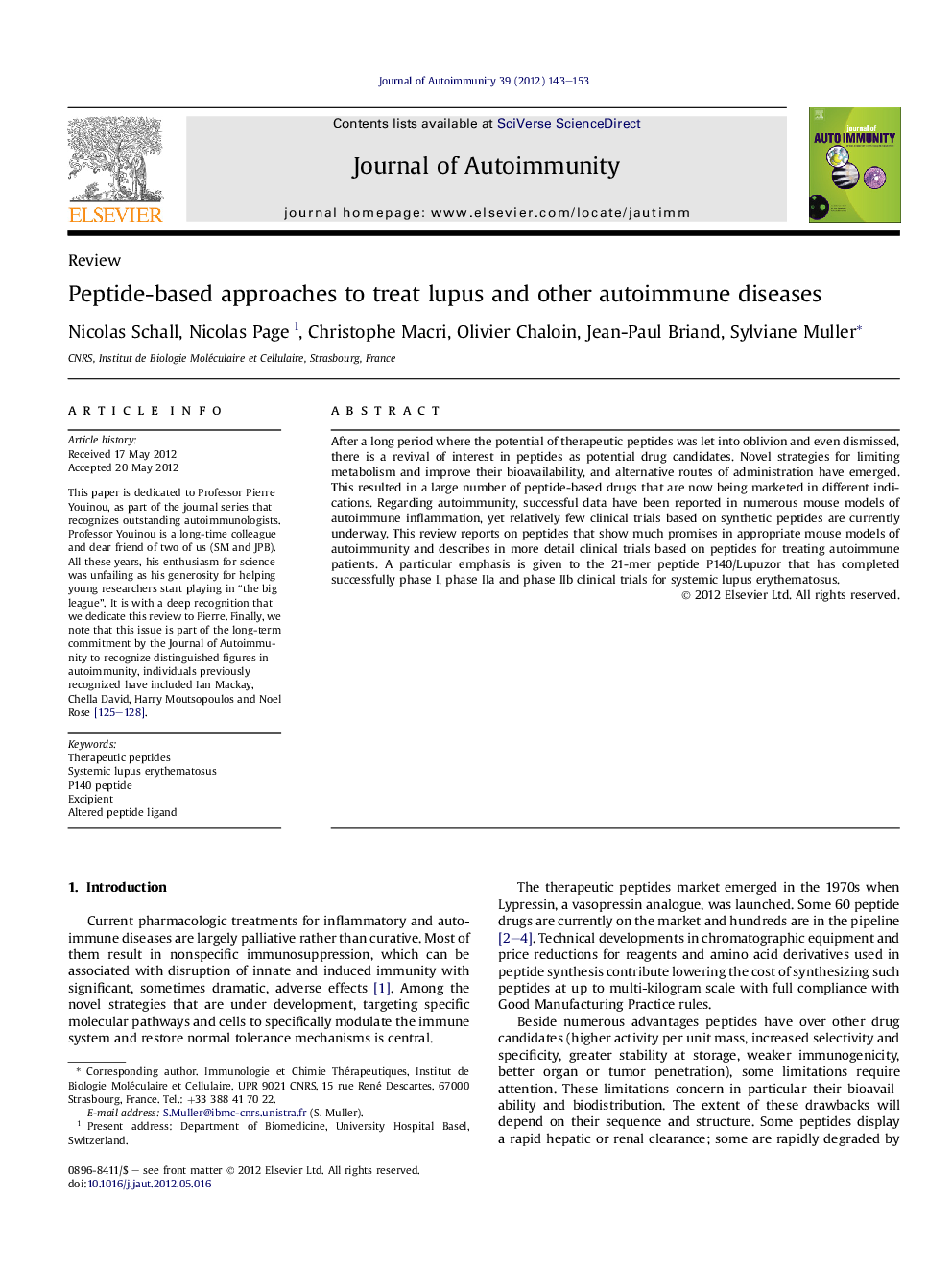| Article ID | Journal | Published Year | Pages | File Type |
|---|---|---|---|---|
| 3367921 | Journal of Autoimmunity | 2012 | 11 Pages |
After a long period where the potential of therapeutic peptides was let into oblivion and even dismissed, there is a revival of interest in peptides as potential drug candidates. Novel strategies for limiting metabolism and improve their bioavailability, and alternative routes of administration have emerged. This resulted in a large number of peptide-based drugs that are now being marketed in different indications. Regarding autoimmunity, successful data have been reported in numerous mouse models of autoimmune inflammation, yet relatively few clinical trials based on synthetic peptides are currently underway. This review reports on peptides that show much promises in appropriate mouse models of autoimmunity and describes in more detail clinical trials based on peptides for treating autoimmune patients. A particular emphasis is given to the 21-mer peptide P140/Lupuzor that has completed successfully phase I, phase IIa and phase IIb clinical trials for systemic lupus erythematosus.
► Synthetic peptides are facing a long avenue of interest for therapeutic applications. ► The phosphopeptide P140 improves the clinical and biological features of lupus mice. ► P140 influences the autophagic flux in APCs and destabilizes MHC molecules. ► The nature of excipient used to administrate a bioactive peptide is critical. ► The peptide P140/Lupuzor has successfully completed phase IIb clinical trial for SLE.
